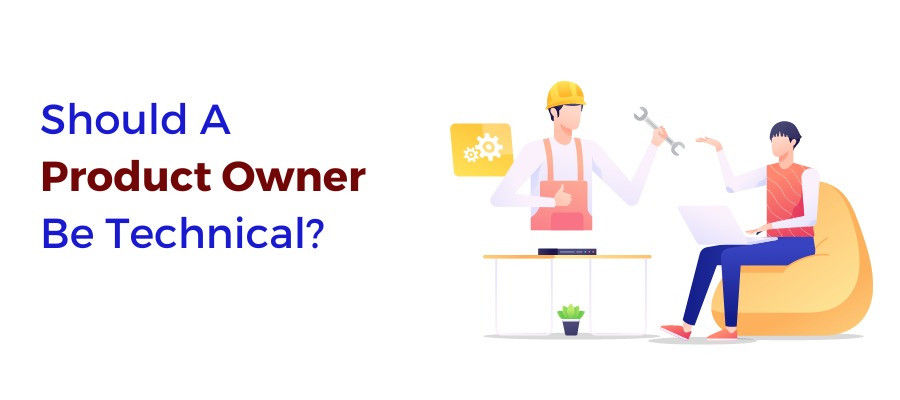Should A Product Owner Be Technical?

The profession of a Product Owner is currently in high demand. Indeed, you will find many job openings for Product Owners online. The Certified Scrum Product Owner works closely with the development and Scrum Team to deliver the best product features to end users and stakeholders. Naturally, the Product Owners must have Agile Training to work with different Agile methodologies. However, many debates whether the Product Owner needs technical skills or not! In this article, we will discover exciting facts related to the relevancy of having technical Education for the Product Owner’s job role.
What Does The Official Scrum Guide Say?
The Official Scrum Guide mainly highlights the advantages of adopting Agile and Scrum methodologies in software development and project management activities. It doesn’t explicitly require a Product Owner to have technical knowledge as the Certified Scrum Master. However, he must be adaptable to the Transformation towards Agility. He might have to act as an Agilist to perform his day-to-day responsibilities. Simply put, having some technical background and Scrum Training will help him in his job as the Product Owner.
But how much technical the Product Owners must be? Here are the must-have skills requirements for today’s CSPO professionals.
Analytical Abilities:
The Certified Scrum Product Owner must have Product Analytics skills. With the right analytics skills, they will be able to perform the following tasks:
- Gather and process user-level data to find better product insights.
- Track end users' buying journeys to improve user engagement.
- Connect customer data with business goals.
- Find the best-suited product analytics tool.
Analytical abilities help the Product Owner to become an Agile Practitioner. From tracking user demographics to checking usage statistics, the PO can utilize the available data to make smarter decisions!
Knowledge Of Agile Methodologies:
As an Agile Beginner, the professional must know the Agile Methodologies associated with the product development and delivery cycle. Before making the final delivery, he must know how the Developers will design, build, and test the product. He must learn the Definition of Ready, Product Design Architectures, and Code Build Cycles. However, as the Product Owner isn’t directly responsible for Product Development, he doesn’t necessarily have to learn programming languages and coding.
Communication Skills:
An Agile Product Owner needs to be a good listener and observer. He must utilize his communication skills to articulate the development team’s thoughts. He must work closely with the Certified Scrum Master and the Scrum Team to understand the project’s progress. He can convey the Product Goal and Sprint Goal with proper communication skills to the stakeholders. He can use good writing skills to create exciting User Stories so that the team understands how to carry out the Product Roadmap
Knowledge of Scrum:
Scrum Framework is revolutionizing the product/software development process. It is safe to say many organisations are performing Agile Transformation with the help of Scrum. Naturally, the Product Owner plays an active role in Sprint Planning and Review alongside the Scrum Master. He participates in the Daily Scrum to collaborate with development teams, scrum teams, and software testers. Managing the day-to-day Product Development activities will be challenging without proper knowledge of the Scrum Framework.
Ability To Develop Product Strategy:
Creating a unique Product Vision is the Product Owner’s sole responsibility. The vision explains the product’s features and uniqueness to the development team. The Product Owner then clearly communicates his requirements to the team, aligning with the end-user requirements. He then puts out a well-planned Product Strategy for the development, integration, and testing team to follow. He guides the Agile Developers to follow the Product Roadmap he has established. He conveys his approach to the Development and Scrum Team, creating a bridge between them and the stakeholders.
Product Backlog Handling:
The Product Backlog is a crucial element in achieving the Product Goal successfully. For that, the Product Owner must know how to handle Product Backlog Item (PBI) and create a prioritized list. In the Backlog, he must specify all product functionalities that the Agile Developers must build. Thus the Backlog becomes a single source of information related to the product design and delivery requirements.
He must also create Sprint Backlog, a subset of the Product Backlog. Development teams follow separate Sprint Backlogs to focus on their own Sprint Goal. The team should not get involved in activities not specified in the Product Backlog. So the Product owner should be good at managing the backlogs. This helps him monitor work progress and determine future sprint goals.
Summing Up: How Can Product Owners Improve Their Technical Knowledge?
The role of a Product Owner is vital for Product Delivery. Without proper knowledge and skills, Product Owners cannot deliver the Product Goal successfully to the stakeholders. That is why they need Coaching and Training. They should focus on Learning the Scrum Framework, Agile Transformation Methodologies, and Project Management. With proper Agile Training, they can upscale their domain expertise which will help them fulfill their day-to-day project responsibilities.
Reference
- https://agilevelocity.com/technical-skills-product-owner/



